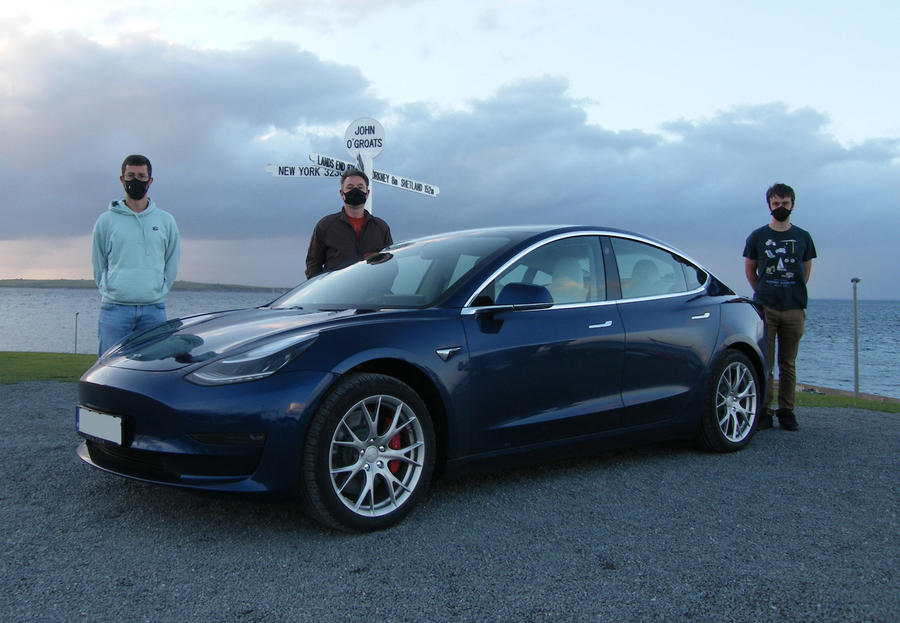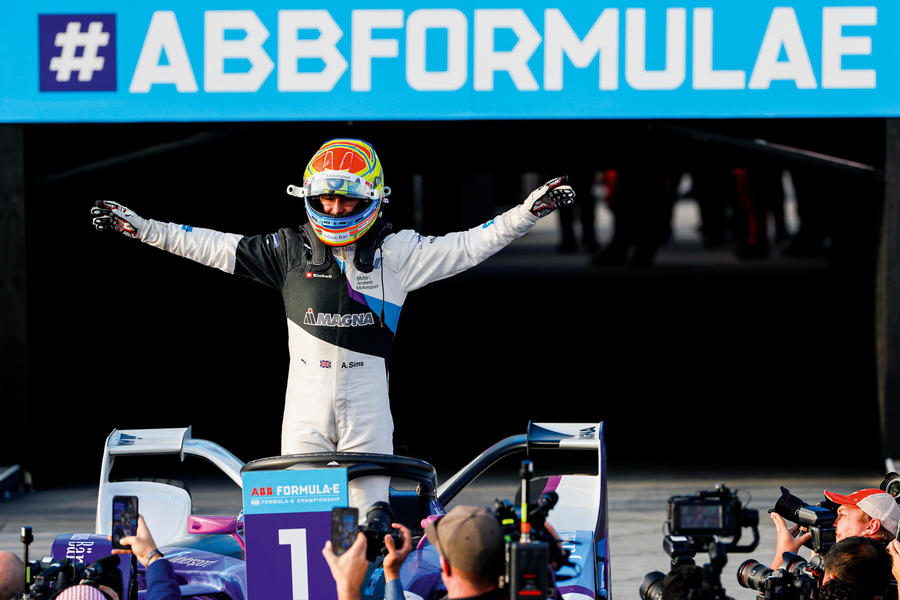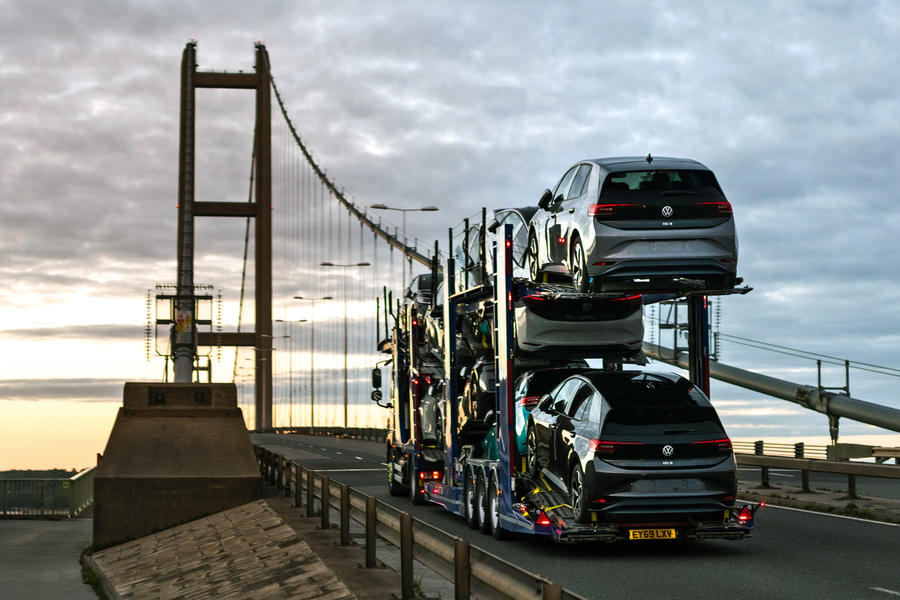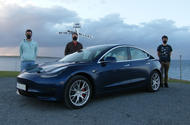Sims’ team set Land’s End to John O’Groats EV charging record
Alexander Sims’ charity has given UK businesses 700 chargers since 2011 to encourage EV uptake
Successful racing drivers are so selfish in their pursuit of world titles that someone once joked that they would happily drive over their own mother for an extra championship point. Yet here we are, interviewing Formula E racer Alexander Sims about his charity work giving free electric vehicle chargers to UK businesses for the past nine years.
Through the Zero Carbon World charity, Sims and his colleagues have been giving away 7kW and 22kW charging points manufactured by Viridian EV since 2011. This isn’t motivated by championship points or prizes but rather one man and his team’s dedication to making the world a better place. To date, 700 chargers have been provided to companies with car parks that customers can access, with the goal of trying to accelerate EV uptake and fill some of the gaps in today’s public charging network.
“We support the smaller B&Bs and smaller tourist attractions who don’t have £4000 to install a commercial solution,” said Sims, who chairs the charity as well as racing for the Mahindra Formula E team after a sparkling career in single-seaters that brought him to the cusp of Formula 1.
“Our project is focused towards sites that people go and spend a decent amount of time at while spending money at that location. Our charging points don’t require a membership, so you turn up, you plug in and you charge.”
As you may have gathered already, Sims’ interest in electrification extends far beyond it being a means to securing a professional racing career. Earlier this year, he also broke the Guinness World Record for the shortest time charging an electric car on the run from John O’Groats to Land’s End, completing the 855-mile journey with his co-drivers in a Tesla Model 3 and stopping to charge for just one hour, 31 minutes and 32 seconds. The previous record, set in 2015, was three hours, 44 minutes and 33 seconds, underlining how far battery capacities and public charging capabilities have progressed in the intervening years.
“The charity is here to highlight the progress being made and to ease the transition for motorists,” said Sims.

“I can’t emphasise how much easier it is as an electric car driver to know that you’re going somewhere that has a charging point, as it means you can use up your battery on the journey there, plug in and be confident that there’s a decent charge so you can get back home without needing to stop again.
“Most people go for a day trip within 150 miles of home, so if you can then charge for six to eight hours while you’re at the location, it’s just brilliant.”
The Zero Carbon World charity gives the chargers away for free, leaving the recipients to cover the installation costs. While that leaves them with a typical cost of around £600, Sims argues that this is the fairest approach, because the charity can budget for the fixed cost of the charger, whereas the fees for installation can vary depending on how much work is required to fit it.
“Our chargers are fast enough to give people a reasonable, if not full, charge during the day,” Sims said. “The cost of installation is still significant for a small business, but I hope we’re making it possible for people to get ahead. Everyone is looking to install points with the way the automotive industry is heading, and we’re doing our bit to help.”
Sims says it takes typically three to six months for points to be installed from a business’s initial enquiry. He acknowledges that there’s a chance the attractions may cease to maintain the chargers, because it’s the site’s responsibility to pay for the upkeep once one is installed, but he prefers to focus on the positives, citing examples where the scheme has helped to persuade firms that are on the fence about EVs to invest.
“Something we often see is that a business will get a point that has been donated by us and then realise customers are using it frequently and come back for a second or third – which we provide at cost, because we can’t give a location 10 points for free – as interest grows,” he said.

“Some do then go down the commercial route, because they’ve tested the water and they can see it’s in use a lot and so they can charge people to charge. It’s a good introduction to having EV chargers on site and proving the value they can add to a business.”
As for the future of Zero Carbon World, Sims admits – hopes even – that he and the charity will be thinking about something else soon. The plans are in place for about another 70 chargers to be given away (“I’d rather they’re installed than sitting in my garage!”), but after that Sims isn’t certain what will come next.
“For now we’re really keen to get this last lot out,” he said. “But the place for a charity donating charging points is diminishing. At some point, the expansion of the network has to be accelerated by commercial operators, and the big players are starting to do that.”
UK car buyers not convinced by electrification plan
The UK government’s commitment to have only electrified cars on sale from 2030 and only electric cars from 2035 has met with a lukewarm reaction, according to a poll of more than 15,000 car buyers by whatcar.com.

The survey revealed that 59% didn’t agree in principle with the plan, with 48% saying they were no more likely to buy an electric car and 29% saying they were more likely to buy a petrol or diesel car in the interim years as a result of the looming ban.
The poll also highlighted the need for better education of the public on the terms used to describe powertrain technologies, such as the differences between an electric car, a plug-in hybrid and a hybrid, because 30% said they don’t fully understand the differences.
Asked what would do most to drive electric car uptake, 39% said a better charging infrastructure, 26% scrappage incentives, 21% better purchasing incentives, 8% better home-charging subsidies and 6% a better education programme to explain the benefits of electric cars.
Daniel Puddicombe
READ MORE
Online parking service introduces pre-bookable EV chargers in UK
UK public EV charging provision increases fivefold in five years
Source: Autocar
